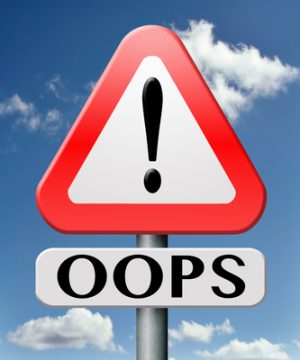People don’t want to be wrong
Do you have board members who are reluctant to use Robert’s Rules? Who decline offers of training or useful publications? I think it’s because people don’t want to be wrong, and they suspect that if they take up this complex system, they’ll find themselves to be wrong quite often.
One city clerk has told me that his councilmembers don’t want to learn how motions and amendments work. All they want is to be told whether they can do something they want at a given moment.
I’m offering a workshop on bylaws for a social club. The president has told me that the people who were most upset about recent bylaws amendments have not actually signed up for the workshop.
I can sympathize with this attitude. Since I first got interested in parliamentary procedure 20 years ago, I’ve had to adjust my understanding and knowledge frequently. In looking back at early articles or workshops, I see that I didn’t always hit the mark.
But I kept at it, and now I do better. As we know, an automatic pilot system works by constantly taking a look at the target, and then correcting the course. “Not this way, nudge it that way…” goes on all the time. We can do the same thing.
It goes against the grain! Our impulse as humans, and in our organizations, is to “get it right and hold it.” But is that realistic? Will that take us where we want to go?
My inspiration here is Shunryu Suzuki, the Zen teacher, who said that a Zen master’s life consists of “shoshaku jushaku,” which translates as “one mistake after another.”
I offer my kudos to those of you who, understanding the importance of good procedure in your meetings, take up the study of Robert’s Rules and parliamentary procedure, and keep at it. In so doing, you are upholding the basic principles of our democracy. You are keeping your organization, and our society, on a steady course.



Thank you for this valuable reminder. Our democracy is so important. We can all learn and grow from mistakes.
Appreciate your comment, Catherine! Thank you.